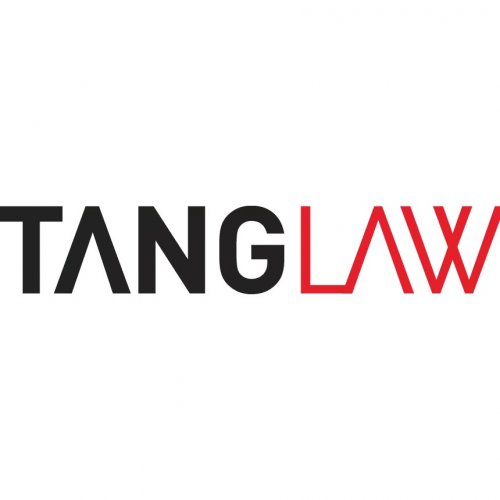Best Child Custody Lawyers in Australia
Share your needs with us, get contacted by law firms.
Free. Takes 2 min.
Free Guide to Hiring a Family Lawyer
Or refine your search by selecting a city:
List of the best lawyers in Australia
About Child Custody Law in Australia
Child custody, commonly referred to as "parental responsibility" in Australia, involves the legal rights and obligations parents have in relation to their children. Under the Family Law Act 1975, the focus is on the best interests of the child, which are the paramount consideration in determining custody arrangements. The law encourages shared parental responsibility wherever it is safe and practical, meaning both parents should be involved in significant decisions affecting their child’s life. If disputes arise, the courts can determine custody arrangements that prioritize the children's welfare.
Why You May Need a Lawyer
While some families can amicably agree upon custody arrangements, others may face complex situations requiring legal intervention. Common scenarios where legal assistance is beneficial include:
- Disputes over custody or visitation rights.
- Concerns about the child's safety with one parent.
- Relocation of a parent, impacting the agreed custody arrangement.
- Disagreements over child support obligations.
- Cases involving allegations of domestic violence.
- Difficulty in reaching an agreement through mediation.
- Instances where one parent wishes to change an existing custody order.
A lawyer can help navigate the legal system, provide advice tailored to your circumstances, and represent you in court if necessary.
Local Laws Overview
Australian child custody laws emphasize the child's best interests, considering factors such as the child's relationship with each parent, their views (depending on age and maturity), the ability of each parent to provide for the child's needs, and the impact of any changes in the child's circumstances. The following are key aspects of the local laws:
- Parental Responsibility: The presumption that both parents should have equal shared parental responsibility unless there's evidence of abuse or violence.
- Parenting Orders: Court orders that determine parental responsibilities, including who the child will live with, time spent with each parent, and other aspects of welfare.
- Mediation: A mandatory step before court proceedings, except in cases involving family violence or urgency, aimed at helping parties reach an agreement.
- Best Interests of the Child: The main principle guiding the court’s decisions, involving an assessment of various factors to ensure the child’s welfare.
- Independent Children's Lawyer (ICL): Represents the child’s interests in complex custody disputes to ensure their views and welfare are considered independently.
Frequently Asked Questions
What is the difference between custody and parental responsibility?
Custody refers to the day-to-day care and control of the child, while parental responsibility involves making long-term decisions such as education, religion, and health. In Australia, the law focuses on parental responsibility rather than custody.
Do courts prefer mothers over fathers in custody cases?
The court does not favor one parent over the other based on gender. Decisions are solely based on the child's best interests.
Can children decide whom they want to live with?
While children's views are considered, their weight depends on their age, maturity, and understanding. The child's best interests remain the primary consideration.
What happens if a parent breaches a court order?
If a parent breaches a court order, the other parent can apply to the court to enforce the order. Consequences may include fines, a variation of the order, or community service.
Can custody arrangements be changed after they are set?
Yes, if there is a significant change in circumstances or if the current arrangement is not in the child's best interests, you can apply to the court to vary the orders.
What role does a mediator play in disputes?
A mediator helps both parties attempt to reach an agreement regarding custody without needing to go to court. It's a confidential and voluntary process.
Is it necessary to have a lawyer for child custody matters?
While not mandatory, having a lawyer can be beneficial to understand your rights and obligations and to navigate complex legal proceedings.
How does domestic violence affect custody decisions?
Courts take domestic violence very seriously, and it can significantly impact custody decisions to protect the child's and affected parent's safety.
Are grandparents entitled to seek custody or visitation rights?
Yes, grandparents and other family members can apply for visitation or custody rights under certain circumstances, especially if they have been involved in the child’s life.
What is the importance of a child custody evaluation?
These evaluations provide the court with insights into the family dynamics and the child's needs, helping inform decisions that are in the child's best interests.
Additional Resources
For those seeking more information or assistance, the following resources can be helpful:
- Family Court of Australia: Provides detailed information about family law procedures and parenting orders.
- Legal Aid: Offers free legal advice and representation for eligible individuals in family law matters.
- Family Relationship Advice Line: A national helpline providing information and advice on family relationships and separation.
- Australian Government's Family Relationships Online: Offers resources and information to assist families with relationship and parental challenges.
Next Steps
If you need legal assistance in child custody matters, consider following these steps:
- Gather Information: Collect all relevant documents, including any previous court orders, communication records, and important dates or events.
- Seek Legal Advice: Consult a qualified family law solicitor to understand your rights, obligations, and the best course of action.
- Attempt Mediation: Engage in mediation to try and reach an amicable agreement with the other parent before pursuing court proceedings.
- File Court Applications: If necessary, with the assistance of your lawyer, file the appropriate applications with the Family Court or Federal Circuit Court.
- Prepare for Proceedings: Work closely with your lawyer to prepare your case ensuring your child’s best interests are effectively represented.
Consulting a lawyer who specializes in family law can provide the guidance and representation needed to navigate the complexities of child custody arrangements effectively.
Lawzana helps you find the best lawyers and law firms in Australia through a curated and pre-screened list of qualified legal professionals. Our platform offers rankings and detailed profiles of attorneys and law firms, allowing you to compare based on practice areas, including Child Custody, experience, and client feedback.
Each profile includes a description of the firm's areas of practice, client reviews, team members and partners, year of establishment, spoken languages, office locations, contact information, social media presence, and any published articles or resources. Most firms on our platform speak English and are experienced in both local and international legal matters.
Get a quote from top-rated law firms in Australia — quickly, securely, and without unnecessary hassle.
Disclaimer:
The information provided on this page is for general informational purposes only and does not constitute legal advice. While we strive to ensure the accuracy and relevance of the content, legal information may change over time, and interpretations of the law can vary. You should always consult with a qualified legal professional for advice specific to your situation.
We disclaim all liability for actions taken or not taken based on the content of this page. If you believe any information is incorrect or outdated, please contact us, and we will review and update it where appropriate.
Browse child custody law firms by city in Australia
Refine your search by selecting a city.
















